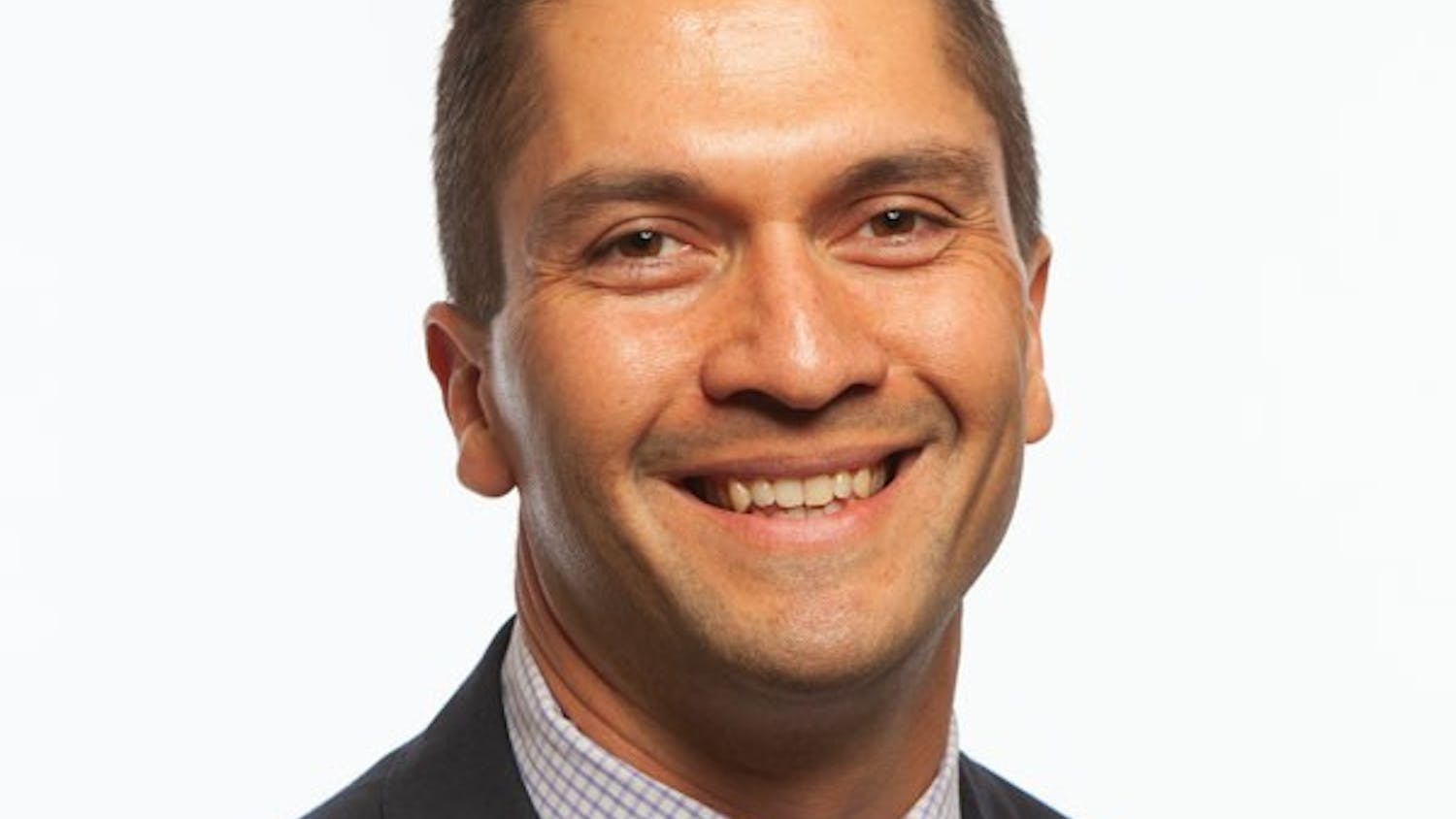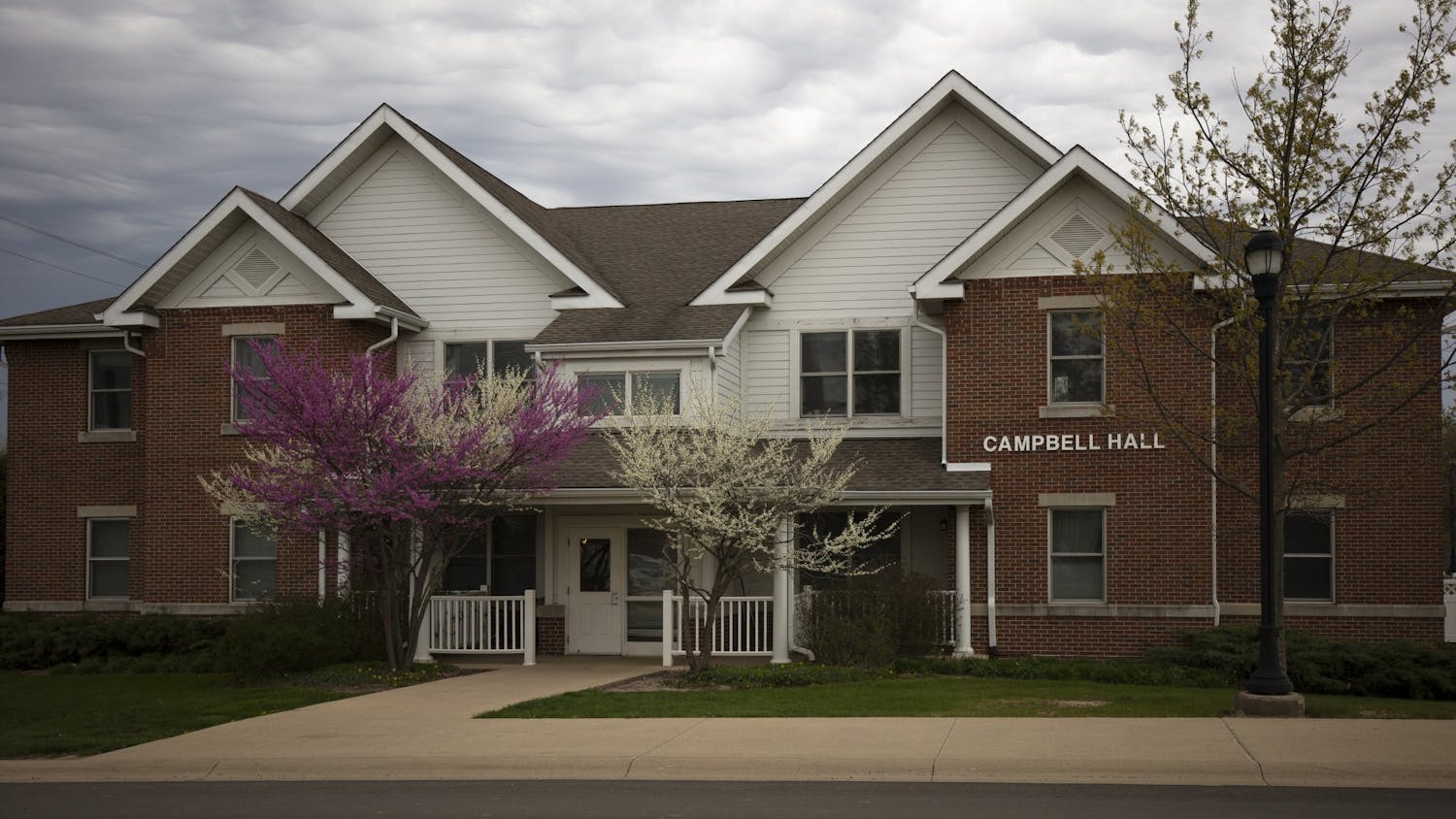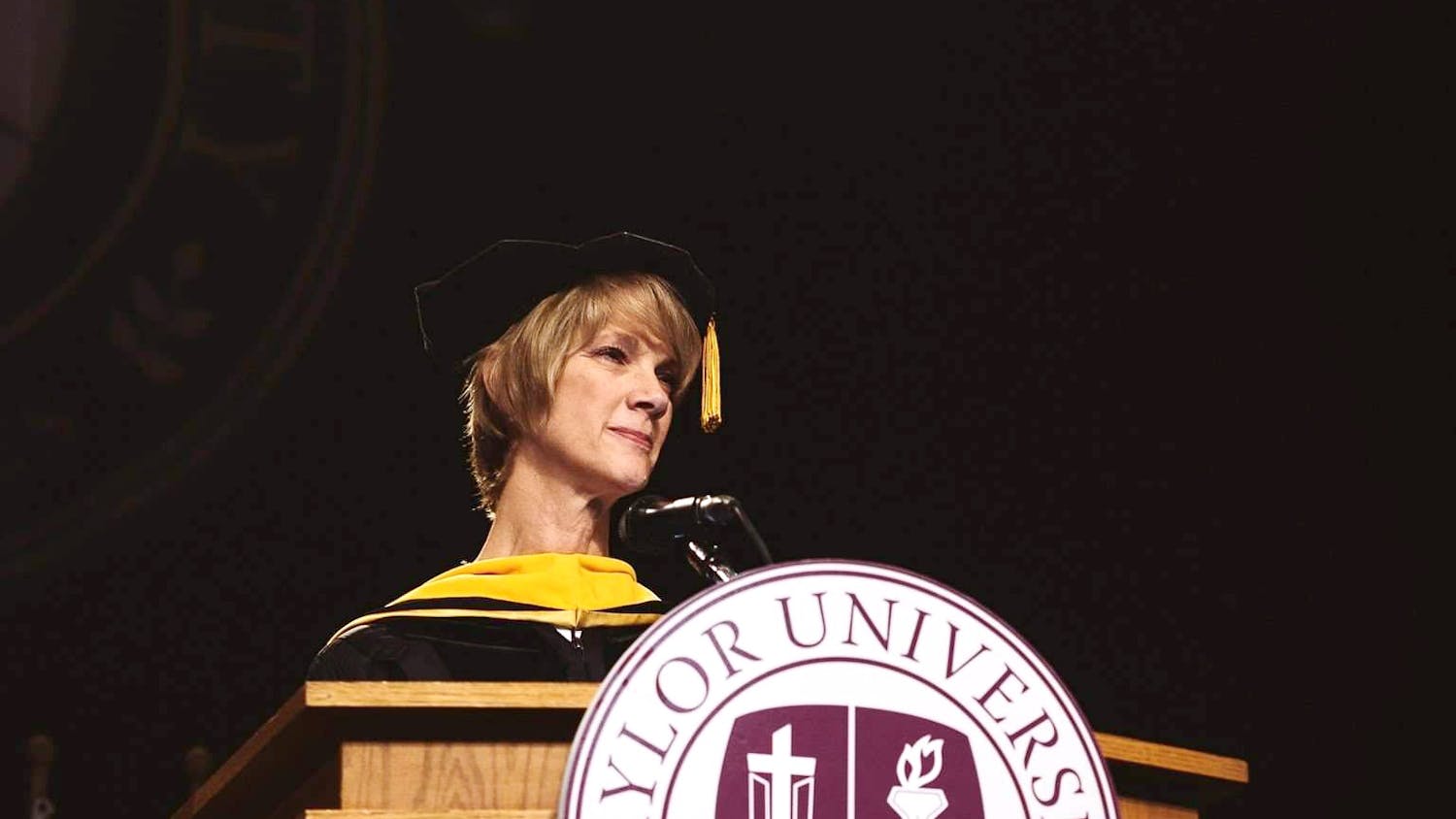Editor’s Note: This Article initially published on theechonews.com May 2, and was updated on May 5.
Taylor University scheduled separate meetings with faculty Thursday morning and with students Wednesday evening last week, following an off-campus online column reporting that a faculty member’s contract was not being renewed for 2023-24. Another student forum is scheduled for Thursday, May 11, in Cornwall Auditorium.
On Monday, May 1, an article released on jemartisby.substack.com included a letter from Julie Moore, Taylor Writing Center director and associate professor of English. The article quoted her saying she would not have her employment contract renewed for the upcoming academic year.

In author Jemar Tisby’s substack, Moore said she taught her sections of English composition at Taylor University through a thematic lens of racial justice. Many of the texts assigned within the class were written by multicultural authors, she said.
Within her narrative, Moore alleges the teaching contract renewal process and her meetings with Maxwell ignored certain protocols.
She claimed that many of the issues discussed in the meetings, and the reasons given for non-renewal, revolved around the way her course was structured.
In an interview with The Echo, Moore said that after she was unable to reach a satisfactory outcome legally, she decided to publicize her story through Tisby’s substack immediately instead of waiting for her contract to expire.
Initially, it was slotted to be released in April, but it was delayed until Monday after she suffered a wrist injury.
Moore taught her classes as regularly scheduled on Tuesday, May 2 and remains in her role within the writing center until her contract expires.
“I could go into each of my classes and say, ‘I know you’ve probably read some about me, but let’s put that (away),” Moore said.
She referenced James 1:19 and asked students to be quick to listen and slow to speak when engaging in conversations, specifically when engaging in conversation with people of color.
Moore is a non-tenure track professor at the university. Non-tenure track professors work on a one-year contract basis. Decisions on whether or not to renew these contracts rest with academic administration and the chief academic officer at the institution. At Taylor, faculty contracts are typically provided no later than March or April for the following school year.
As of May 2, Moore told The Echo she did not have any career plans after her contract expired.
On Monday, May 1, President Michael Lindsay shared a brief statement on the situation with the Taylor community via email.
“We understand and empathize with a faculty member’s disappointment when a contract decision does not go as they hoped,” Lindsay said in the statement. “Multiple personnel factors are considered when the University decides not to renew a contract, as was the case here.”
“We strongly disagree with what has been asserted,” the email read.
However, due to university policy on human resource personnel matters, the administration said it was not able to elaborate on specific factors.
The student forum held Wednesday night was led by Lindsay, the Rev. Greg Dyson, vice president of Intercultural Leadership and Church Relations, Nancy Dayton, dean of Arts & Humanities, and Skip Trudeau, vice president for Student Development.
Before the forum opened up to questions, each offered comments on the situation, emphasizing that direct questions on the situation, due to privacy and Human Resource policies, could not be answered.
Lindsay said that Maxwell, who was away from campus last week, will take time to meet with students upon arriving back at Taylor.
Dayton provided context for the academic processes at Taylor and shared some of the common reviews and conversations that happen — specifically for non-tenure track faculty members, like Moore.
Dyson said that intercultural events and opportunities for students are up 45% over recent years, and discussed his desire to continue to see growth. He implored students to let him and others within administration know of areas where they feel the university can improve, while also acknowledging his belief that the university has significantly invested in this area over recent years.
“If we’re not doing enough, if you think we ought to be doing more, we welcome that conversation,” Dyson said. “And if that’s not right, let’s fix it.”
Students spent the remainder of the forum’s 50 minutes asking questions surrounding intercultural relations on campus.
Another forum was held for faculty on Thursday morning, May 4.
“Julie Moore has not been fired and she is still teaching her classes and will finish out the semester,” Lindsay said in the forum. “We recognize how hard this is… Julie is our sister in Christ. We want to model for our students how we engage in difficult situations. To be as gracious and grace-filled as we can.”
Several faculty members asked questions about academic freedom.
“We engage in robust discussions. It is critical that we do that because we have to model for our students how to engage (difficult topics) in the world beyond Taylor,” Dayton said. “ I practice that. … we engage those ideas… I teach texts that I do not personally agree with. To model how to show students to engage topics.”
Tisby’s article on his substack is partially titled, “Another Professor at a Christian University Fired for Racial Justice Teachings.” The nature of the article meant much of the feedback surrounding it centered on the racial justice theme of her courses.
“We recognize, though, that there have been questions raised for some about the university’s commitment to intercultural relations,” Lindsay said in his email. “Let me assure you that we remain fully dedicated to embracing and celebrating diversity as an intentional community striving to live out the Gospel of Jesus Christ, which transcends all ethnic, cultural, socio-economic and national divisions.”
Included in the aftermath was a gofundme entitled, “Professor Julie Moore and Family,” organized by Marlena Graves, assistant professor of spiritual formation at Northeastern Seminary on the campus of Roberts Wesleyan in Rochester, NY. The gofundme sought a goal of $65,000 and was created on May 1.
A petition on change.org was also started by anonymous students at Taylor. Nearly 400 signatures were recorded within 24 hours.
On Wednesday, May 3, an open letter regarding the situation was started by alumni and former staff members. The letter asked for an open apology from administration and reinstatement of Moore after the academic year. As of Thursday morning, May 4, over 180 signatures had been registered.
Substack is a commercial online service that authors can subscribe to for publishing their articles, blogs or opinion columns.




